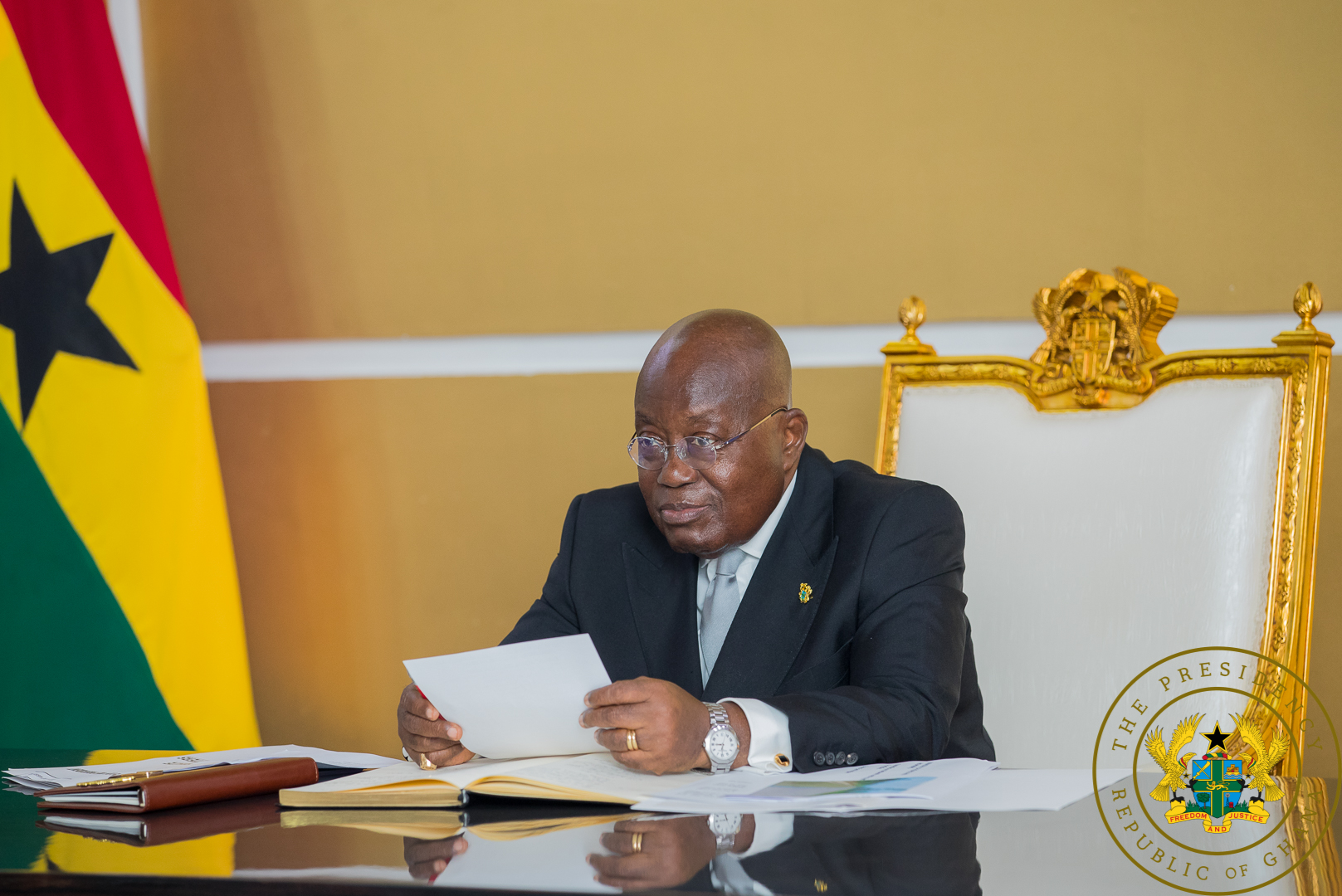
"Any legislation we pass must be in complete alignment with the provisions of our Constitution' - Akufo-Addo
President Nana Addo Dankwa Akufo-Addo has said that he is unable to assent to the Criminal Offences (Amendment) Bill, 2022, (Witchcraft Bill) and the Armed Forces (Amendment) Bill, 2023, because of constitutional issues.
In a letter written to the Speaker of Parliament, Alban Sumana Kingsford Bagbin, and read by the Speaker himself on the floor of Parliament yesterday, the President indicated that there were “specific constitutional concerns regarding the bills related to Article 108, particularly the nature of these bills, which were introduced to Parliament as private members’ bills rather than being presented by or on my behalf”.
Article 108 of the Constitution provides that Parliament shall not proceed upon a bill that in the opinion of the person presiding imposes a charge on the Consolidated Fund or other Public Funds.
"The content of these bills have my support, but we need to ensure that they are enacted in line with established constitutional and legislative processes," the letter by the President said.
Advertisement
"After thorough consideration in the light of constitutional issues, I'm unable to assent to these bills,” it added.
The letter said the concerns raised were significant, and had profound implications for the constitutional integrity of "this legislative action".
"Any legislation we pass must be in complete alignment with the provisions of our Constitution.
"I intend to have the bill reintroduced to Parliament on my behalf in due course," the letter said.
The President is also yet to assent to the Wild Life Resources Management Bill, 2023.
Unlike the other two, the President indicated that this bill was introduced on his behalf.
However, the letter said, various provisions of the bill required Parliament to reconsider the move to ensure that the bill, when enacted, would be in alignment with established constitutional legislative processes.
The letter said once the necessary considerations and review were done, an action would be taken.
Background
The Criminal Offences (Amendment) Bill, 2022, popularly referred to as the Witchcraft Bill, explicitly criminalises the practice of witchcraft accusation and proscribes the declaration, accusation, naming or labelling of another person as a witch, and its related matters.
The object of the bill is to amend the Criminal Offences Act, 1960 (Act 29), to prohibit the practice by any person as a witch doctor or witch finder.
It formed part of the broad policy measures to deal with attacks and human rights violations arising out of witchcraft accusations.
The bill was laid in Parliament on March 31, 2023, by the Member of Parliament (MP) for Madina, Francis-Xavier Sosu, on behalf of other co-sponsors.
The co-sponsors were MP for Pusiga, Hajia Laadi Ayii Ayamba; MP for Wa East, Dr Godfred Seidu Jasaw; MP for Krachi, Helen Adjoa Ntoso, and MP for Afram Plains North, Betty Nana Efua Krosbi Mensah.
Retrogressive action
Reacting, Mr Sosu said the President’s refusal to sign the Criminal Offences (Amendment) Bill, 2022 and the Armed Forces (Amendment) Bill, 2023 into law was “very retrogressive and smacks of bad faith”.
He said it was so shocking that the President would raise constitutional infractions, given that the two bills were passed by consensus at the committee and plenary levels during their considerations.
He said the bills were first introduced through the Parliament of Ghana or initiated on September 30, 2021.
He said usually when a bill was introduced, it went through several processes of consultation, and the Drafting Department of Parliament would have to research into the background of the bill to come to a conclusion that the bill did not violate Article 108 of the Constitution.
Thorough consultations
“It is quite strange that at this last stage the President would say that the bill has violated some Constitutional provisions,” Mr Sosu said.
He said Article 108 only regulated Parliament’s admission process of bills in terms of private members’ bill.
“Once a bill has been admitted and has gone through all the processes and passed, it has become an Act of Parliament.
“And there is no provision wherever in the Constitution that says that when an Act has been passed by Parliament, the President can choose not to assent to the Act on grounds that that Act or its enforcement will in some respect have a charge on the Consolidated Fund,” he said.
Misconstruing Article 108
Mr Sosu said every law, once passed by Parliament, became public law, and its enforcement would by all means have some form of financial implications, including its gazetting.
“So, the President misconstrued Article 108 when he gave that as a basis to refuse an assent, and it is quite retrogressive and unfortunate because we are talking about a social problem that is destroying people, the lives of most vulnerable people of our society — elderly women, widows, the marginalised,” he said.
Mr Sosu recalled that the Criminal Offences (Amendment) Bill began in the Seventh Parliament but could not be passed, and was revived when a 92-year-old woman — Akua Dentaa — was killed upon being accused of witchcraft.
“Since the passage of this bill, while we were waiting for a Presidential assent, three more women have died on account of witchcraft accusation,” he said.
Mr Sosu added that the Constitution was clear that once the President refused to assent a bill, he was supposed to convey, in the next 14 days, the specific reasons and amendments that the government was seeking to propose, but not just a blanket statement that some constitutional provisions had been flouted.
He pointed out that during the 42nd session of the Universal Peer Review in Geneva in Switzerland, the Attorney-General, Godfred Yeboah Dame, a principal legal advisor to the government, made reference to both the Death Penalty Bill and Witchcraft Bill as ways Ghana was resorting to deal with human rights abuses.
